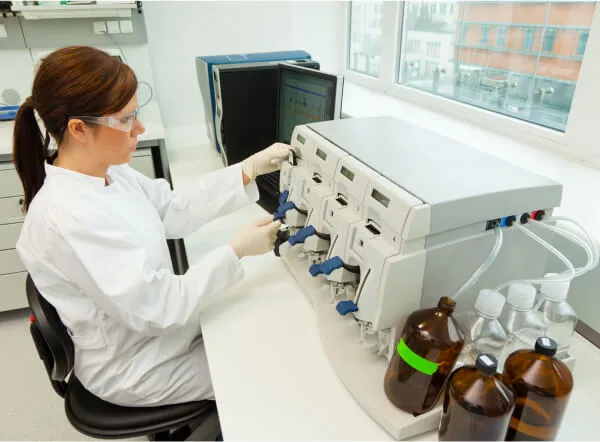Toxicology

Toxicology is the study of chemicals and other substances, as well as their effects on living things. Below are several resources that can help you decide if studies in toxicology are right for you, what types of careers are available in this field and what type of educational training you'll need to reach your goal.
<h2 id="section---IsToxicologyForMe">Is Toxicology For Me?</h2>
<h3 id="section---CareerOverview">Career Overview</h3>
<p>Toxicology is the study of the harmful effects of poisonous chemicals and drugs. As a toxicologist, you may be responsible for conducting scientific research that will allow you identify different chemicals that can be hazardous to one's health. You will also use your scientific expertise to develop safety standards for using these chemicals and teach the public about the side effects and consequences that come with exposure to different hazardous chemicals. Toxicology is used in the fields of <a href="https://learn.org/articles/Pharmacist_Career_Definition_Occupational_Outlook_and_Education_Prerequisites.html">pharmacy</a>, chemical development and environmentalism, as well as law enforcement and <a href="https://learn.org/articles/What_is_Crime_Scene_Investigation.html">crime scene investigation</a>. Toxicologists are employed in a variety of areas, including government health agencies, biotechnological, pharmaceutical or chemical companies, law enforcement and environmental consulting firms.
</p>
<h3 id="section---EmploymentInformation">Employment Information</h3>
<p>According to the U.S. Bureau of Labor Statistics (BLS), employment for medical scientists, which typically include toxicologists, is projected to see a 13% growth over the 2012-2022 decade (<i>www.bls.gov</i>). This is an average rate for all jobs. Medical scientists who research the development of new medical treatments are expected to see favorable job opportunities. The BLS also reported that the median annual wage for medical scientists was $76,980 in May 2012.
</p>
<h2 id="section---HowCanIWorkInToxicology">How Can I Work in Toxicology?</h2>
<h3 id="section---Education">Education</h3>
<p>Like most medical scientists, toxicologists require a Ph.D. in Toxicology, Chemistry or a related field, in order to qualify for positions in independent research and academia. As a <a href="https://learn.org/articles/Toxicology_Education_Distance_Learning_Course_and_Program_FAQs.html">toxicology student</a> in a bachelor's degree program, you'll be introduced to bio-technological techniques, providing insight into drug and toxins at the <a href="https://learn.org/directory/category/Biological_Sciences/Toxicology_and_Pharmacology/Molecular_Toxicology.html">molecular</a> level. Coursework will give you an opportunity to learn how toxic chemicals and drugs affect organs, chemical assessment, drug safety and an understanding of toxicants through lecture and labs. You may take classes in subjects such as chemistry, biology, pharmacology, environmental toxicology and biochemistry.
</p>
<p>Master of Science (M.S.) in Toxicology programs typically include coursework in areas such as mechanistic, analytic, environmental and regulatory toxicology. Doctor of Philosophy (Ph.D.) in Toxicology studies usually focus on a more specific research project, preparing graduates for careers in academia or research. Specific research on the effects of toxic chemicals and drugs on the pulmonary, neurological and other body systems are conducted under faculty supervision. Theory and application is also covered through calculation procedures, interpretation and presentation of data.</p>


.svg)